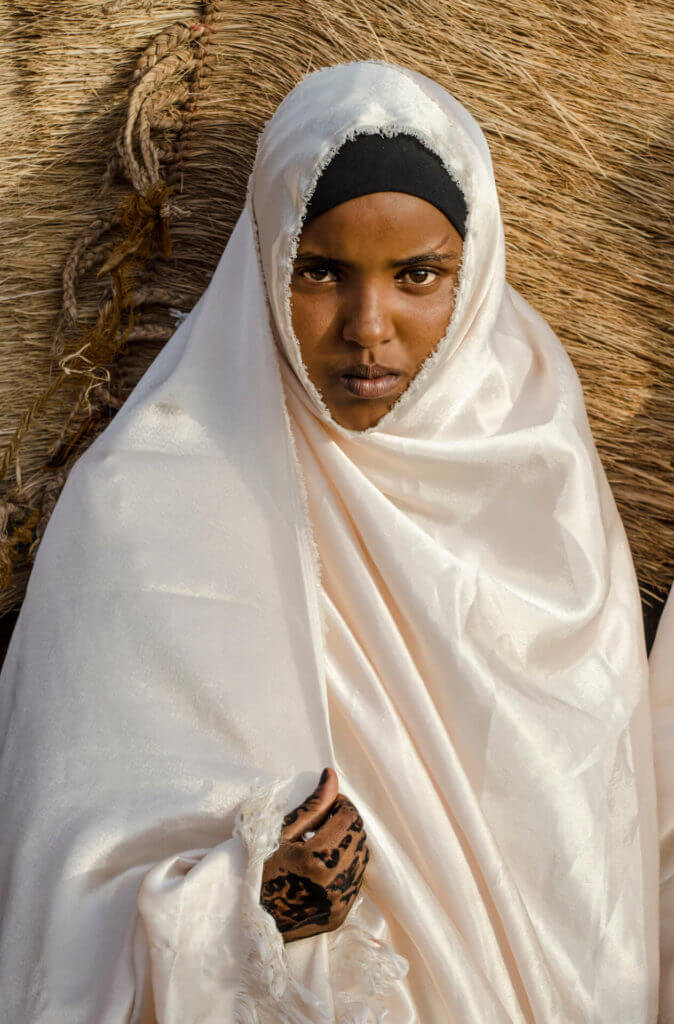
Somali

Somaliland is referred to as a “Nation of poets,” a land where poets are revered and hold status like rock stars. For the majority of Somalis, largely nomadic pastoralists, oral literature plays an important role, as it has done for 1,000’s years.
Women are still courted through poetry and song, and poetry also plays an important part in marriage.
Weddings are one of the most important occasions in Somali life, celebrating not only the union of two individuals, but the relationships between two families and more importantly, two clans. Somali men, known as the great camel herders of Africa, once gave as many as one hundred camels as dowry for a bride, but today six to eight camels are normal, even two to three.
Shortly after the bridal dowry is given, preparations for the wedding begin. Women braid the bride’s hair into long tresses, decorate her hands and feet with henna, and dress her in white silk robes. Beautifully adorned, she is led by her bridesmaids under a multi-coloured awning to a large wedding shelter, known as Agal, made of hundreds of intricately woven mats. As she enters the Agal a long procession of men arrive from the opposite direction, robed in pink, carrying spears, and humming Islamic songs of praise to the Prophet.
The wedding continues for five to seven days, the women leading the ceremony by day, singing and blessing the bride with camel’s milk and butter. At nightfall, men take the lead with speeches and poetry, much of it composed spontaneously, in praise of the bride and groom. It is the richness of a speaker’s praise, the insights of his wisdom, and the acuity of his intellect that impresses the guests.
Throughout the wedding men perform the vigorous Erigaabo dance, stamping their feet, twirling their walking sticks, and whirling around in circles, their scarves flying. As the chants and clapping increase in intensity, the dancers become more energetic, continuing into the night.
At the close of the wedding ceremony, women arrive carrying tall baskets covered with blue-and-white-striped netting, resembling the hourglass figures of young females. These baskets, known as Xeedho are bound with cords tied into complicated knots. The groom’s best man is required to find a way to untie these knots. If he fails, he is disgraced, but if he succeeds the strings fall away with erotic symbolism of the groom undressing the bride, revealing inside a store of dates, spices and sweetmeats, traditional Somali delicacies for the male guests to consume.

Somaliland is referred to as a “Nation of poets,” a land where poets are revered and hold status like rock stars. For the majority of Somalis, largely nomadic pastoralists, oral literature plays an important role, as it has done for 1,000’s years.
More...
Somaliland is referred to as a “Nation of poets,” a land where poets are revered and hold status like rock stars. For the majority of Somalis, largely nomadic pastoralists, oral literature plays an important role, as it has done for 1,000’s years.
More...
